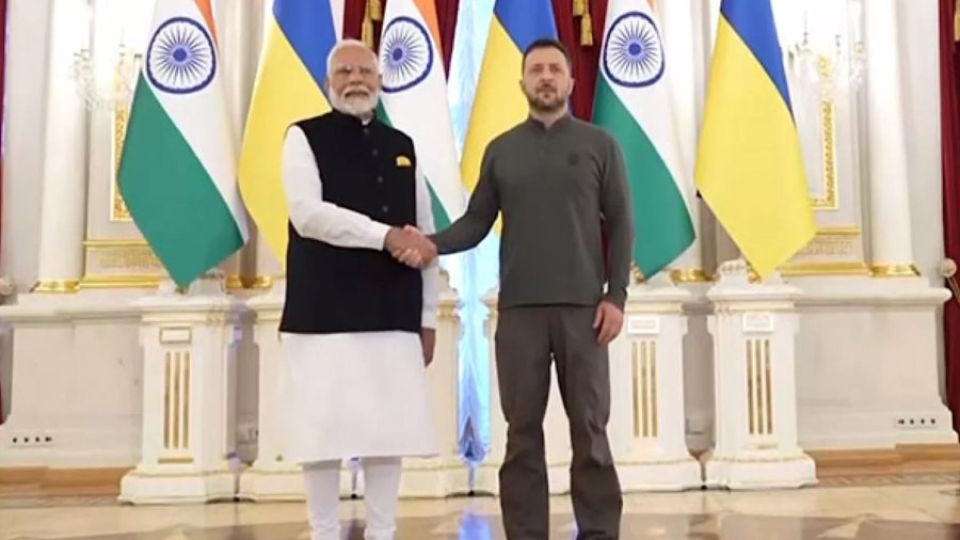August 26, 2024
NEW DELHI – Prime Minister Narendra Modi’s visit to Kyiv on Friday was not just a symbolic gesture but a crucial diplomatic engagement that could shape India’s foreign policy trajectory amid the ongoing Russia-Ukraine conflict. Mr Modi’s discussions with Ukrainian President Volodymyr Zelenskyy highlighted India’s complex balancing act between its historical ties with Russia and its growing engagement with Ukraine and the West. During the meeting, Mr Modi iterated India’s consistent call for peace and dialogue. He emphasised that India, while not taking sides in the conflict, believes in the sovereignty and territorial integrity of all nations, including Ukraine.
Mr Modi’s message to President Zelenskyy was clear: India supports a peaceful resolution to the conflict through diplomatic channels rather than military means. Mr Modi also expressed deep concern about the humanitarian crisis caused by the war. India has already provided humanitarian aid to Ukraine, and Mr Modi assured Mr Zelenskyy that the country is ready to do more if necessary. He highlighted India’s commitment to helping those affected by the conflict, particularly in ensuring the safety and well-being of civilians. A key aspect of Mr Modi’s message to Mr Zelenskyy was India’s willingness to play a role in facilitating dialogue between Russia and Ukraine. India’s neutral stance allows it to act as a potential mediator, and Mr Modi offered India’s good offices to support any peace initiatives. This aligns with India’s broader foreign policy approach, which seeks to engage all parties in global conflicts without compromising its strategic autonomy.
Beyond the immediate conflict, Mr Modi and Mr Zelenskyy discussed the broader geopolitical implications of the war. Mr Modi expressed concerns about the impact of the conflict on global food security and energy markets, issues that have directly affected India and other developing nations. He urged Mr Zelenskyy to consider the wider ramifications of the conflict and to work towards a resolution that stabilises these critical sectors. Furthermore, Mr Modi highlighted the importance of strengthening bilateral ties between India and Ukraine. While defence cooperation remains a sensitive topic due to India’s reliance on Russian military hardware, Mr Modi and Mr Zelenskyy explored other areas of collaboration, such as technology, agriculture, and education. Mr Modi emphasised that India sees Ukraine as an important partner in Eastern Europe and is committed to building a long-term, multifaceted relationship.
However, Mr Modi was careful not to alienate Russia during his discussions with Mr Zelenskyy. He reaffirmed India’s historical ties with Moscow and avoided any statements that could be perceived as a condemnation of Russia’s actions. This delicate diplomacy underscores India’s desire to maintain strategic partnerships with both Ukraine and Russia, a balancing act that will be crucial for India’s foreign policy moving forward. By emphasising peace, dialogue, and humanitarian support, Mr Modi has positioned India as a responsible global player that can engage with all sides without compromising its core interests.


